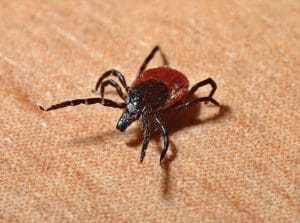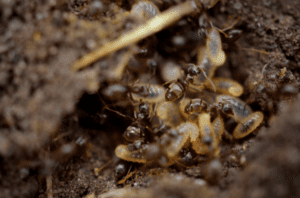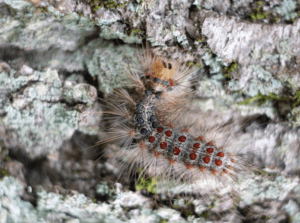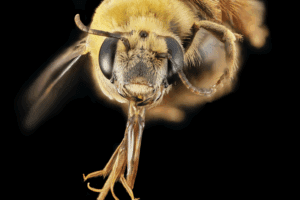
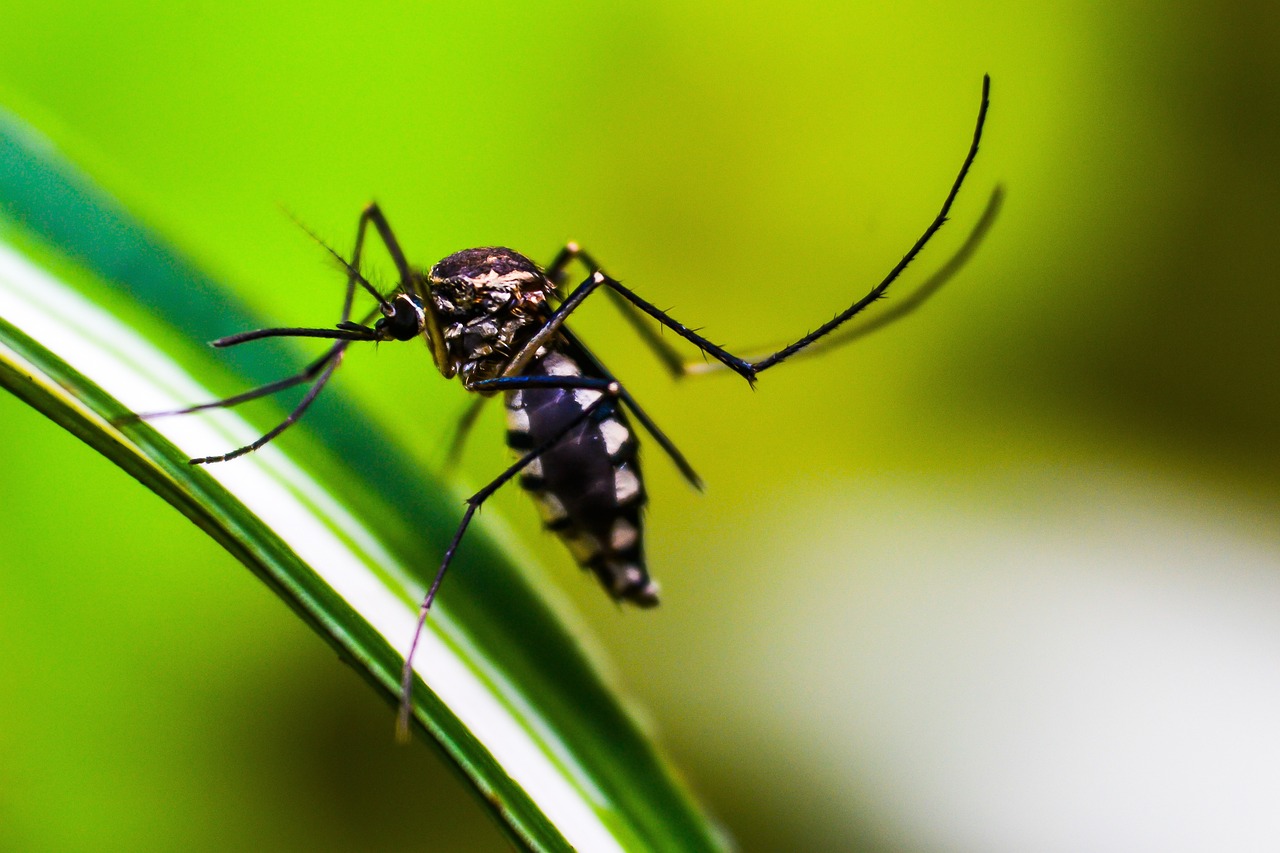
After an icy winter, spring is always welcomed in New Jersey. However, warmer weather often brings with it unwelcome pests and bugs. Just like humans, these bugs emerge from their woodland homes and logs to feed and breed during the warmer months.
If you want to keep your home and garden pest free and avoid potentially harmful run-ins, these are the bugs to watch out for when spring arrives in the Garden State.




Mosquitoes
New Jersey has become known as a hotspot for mosquitoes, with experts predicting the existence of over 63 different species of these pests in the state. The worst of all of these species is known as the Asian Tiger mosquito, as the females are consistent biters. The females of this species need blood to produce eggs – so they’re going to be on the hunt no matter what. Now you may think that getting bitten by a mosquito is not the worst thing in the world, but the danger with Asian Tiger mosquitoes is that they often carry harmful diseases such as the West Nile virus, encephalitis, and dengue fever. All of which you should protect yourself against. There are multiple prevention tips to guard yourself against harmful mosquitoes, such as tidying and cleaning your yard, removing water sources, and clearing any trash. However, if you want to fully protect yourself from the harmful diseases that mosquitoes spread, seeking the help of professional pest control experts is the best course of action.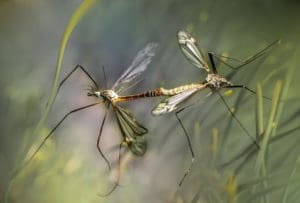
Carpenter Ants
Many people often mistake carpenter ants for termites because both of these insects love wood. The main difference between carpenter ants and termites is that the former prefers wet wood, meaning during the months after winter your home might be the perfect breeding ground. Carpenter Ants are harmful because they are always ready to chomp down and bite any obstacles in their way – including you. They often vary quite heavily in size and color, so they might be difficult to spot. In New Jersey, however, the most popular type of carpenter ants are those which are large and black. The damage that these pests can cause to your home is often foundational as they slowly break down the structures that support buildings. Professional help might be the best course of action when dealing with carpenter ants as they tend to burrow deep into the wooden crevasses of homes and are extremely difficult to self-exterminate.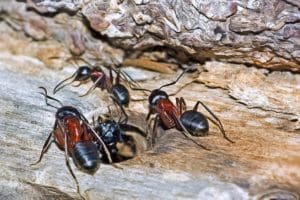
Termites
Now on to the more dangerous cousin of the carpenter ant – the Eastern subterranean termite. This species of termite is extremely prominent in New Jersey and prefers to nest and burrow in dry wood, as opposed to damp wood. Termites, however, work non-stop throughout the year and never take time off for hibernation – so you need to stay vigilant at all times for signs of termite damage. Termites, often compared in termite vs ants scenarios, are extremely smart insects, and they’re often very difficult to spot. They create long and winding passageways within their burrows and nests to travel to and from food sources. They are also extremely quiet, making them even more difficult to see and exterminate. Springtime is the most likely season of the year that you'll come into contact with termites because of what is known as the "spring swarm." During this period, winged termites emerge from their nests to initiate reproduction and establish new colonies. If you happen to spot a winged termite or a swarm, it's crucial to seek professional assistance promptly. Engaging the services of experts will initiate the process of extermination and prevent further damage. Acting swiftly is essential because if a termite colony forms within the structures of your home without intervention, it may be too late to salvage the situation, and irreparable damage could ensue. Familiarizing yourself with the interesting facts about termites, as well as distinguishing between termites and ants, enables you to identify the signs of termite activity and take proactive measures to safeguard your property from their destructive tendencies.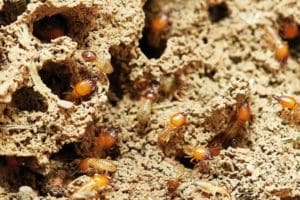
Ticks
Ticks are often looked at as the weakest of all pests and the easiest to keep under control. This, however, could not be further from the truth, especially in a state like New Jersey where deer ticks are prominent. Deer ticks are the primary carriers of Lyme disease in the United States, which could present a considerable health hazard for many people. Ticks also carry other diseases such as maladies which could cause severe fevers, muscle aches, rashes, and headaches. Ticks do not burrow and nest within human homes. But if you live near a large patch of grass or an open field you may be at risk of tick bites and infestation. Ticks are notorious for moving from these open fields and woodland areas into gardens and yards, often waiting for prey to present itself. The best way to protect your home from ticks is to reclaim your yard by keeping it neat and removing water and food sources that might attract ticks. Apply pesticides to your grass if necessary, and if you’re still feeling unsure it might be best to call on Twin-Boro to eradicate ticks and prevent future infestations.